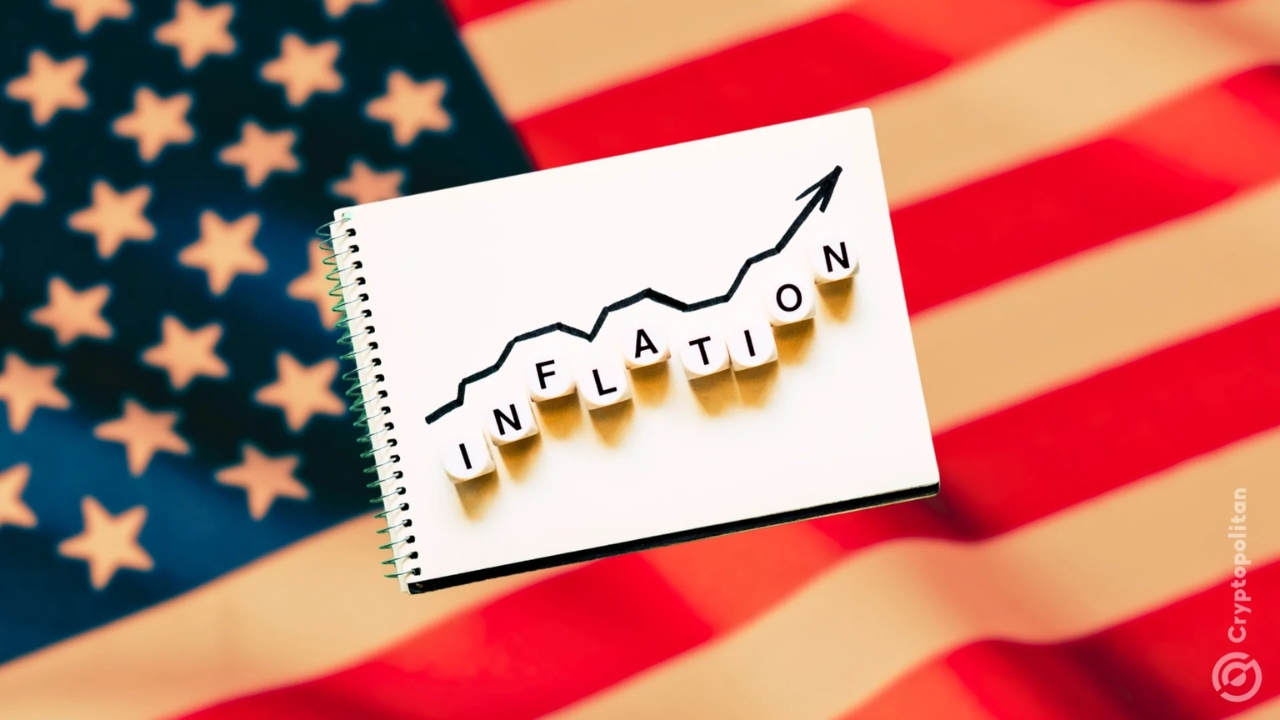According to global capital markets commentary firm Kobeissi Letter, the Fed made a huge mistake in initiating an aggressive approach to interest rate cuts, which began in September. The publication shared charts showing a similar spike in interest rates in the 1970s, drawing comparisons with the current inflation rate.
The market commentary pointed out that the core inflation rate has remained above 3.0%. Data released by the U.S. Bureau of Labor and Statistics for the Consumer Price Index in October showed that core inflation remained at 3.3%, the same as in September.
Consumer prices for urban consumers rose by 0.2% for all items, including food, energy, and shelter, similar to the past three months. The current record places the CPI on all items at 2.6%, up from September’s 2.4%.
CPI, less food and energy, rose by 0.3% in October, the same as in August and September. The index for shelter was notably one of the highest, rising by 0.4%. Other items that rose significantly were airline fares, used vehicles, medical care, recreation, and shelter. Cheaper items include household furnishings, communication, and apparel.
The Bureau of Labor and Statistics is yet to release PCE data on November 27. The PCE index depends on the CPI and producer price index.
S&P 500 reacts to the October inflation data
Last week, stocks began reacting to this.
8 days ago, we took shorts in the S&P 500 on our premium member private feed as seen below.
While everyone was bullish, we got ahead of the drop.
Subscribe at the link below to access these real-time alerts:https://t.co/SJRZ4FrfLE pic.twitter.com/9ZNF6Enlq7
— The Kobeissi Letter (@KobeissiLetter) November 16, 2024
Despite a slight rise on Wednesday, top stock indices, including the Nasdaq Composite, S&P 500, and Dow Jones, dropped later.
On Wednesday, the Dow Jones was near even, while the S&P 500 and Nasdaq Composite dropped 0.1% and 0.3%, respectively. The 10-year and 2-year U.S. Treasury yields stood at 4.42% and 4.29%, respectively.
Previously, the S&P 500 equity risk premium had dropped to near zero as the market anticipated higher inflation rates from the October report. David Rosenberg, the founder and president of Rosenberg Research and Associates Inc., revealed that the drop in risk premiums could have been due to an increased interest in bonds.
Economists bank on the Fed cutting rates again in December
BREAKING: Prediction market odds of NO rate cut in December skyrocket to 38% after Fed Chair Powell speaks.
Fed Chair Powell said the Fed does not need to be "in a hurry" to reduce interest rates.
This comes less than 2 months after the Fed started their rate cut cycle with a… pic.twitter.com/qW5DhsH7Jp
— The Kobeissi Letter (@KobeissiLetter) November 14, 2024
The financial space is increasingly placing more bets on another Fed rate cut in December. The Kobeissi Letter’s predictions indicated that the probability of a cut stands at 62%. Chris Ciovacco, the founder of Ciovacco Capital, predicted an 82% probability of a 25-basis-point rate cut in December on November 13.
However, the Fed is not very sure about taking more rate cuts head-on as it has done in September and November. The Fed Reserve of Boston’s president, Susan Collins, said that another rate cut in December is not a “done deal.” Collins mentioned that more data will come out between now and December, possibly affecting the Fed’s decision.
“There’s more data that we will see between now and December, and we’ll have to continue to weigh what makes sense.”
Fed Chair Jerome Powell also expressed reservations despite the recent worrying inflation data from October. According to Powell, there is no hurry to initiate any more rate cuts. So far, the Fed has dropped interest rates to the 4.50% to 4.75% range.
In case of another cut, the rate will drop to between 4.25% and 4.50%.





